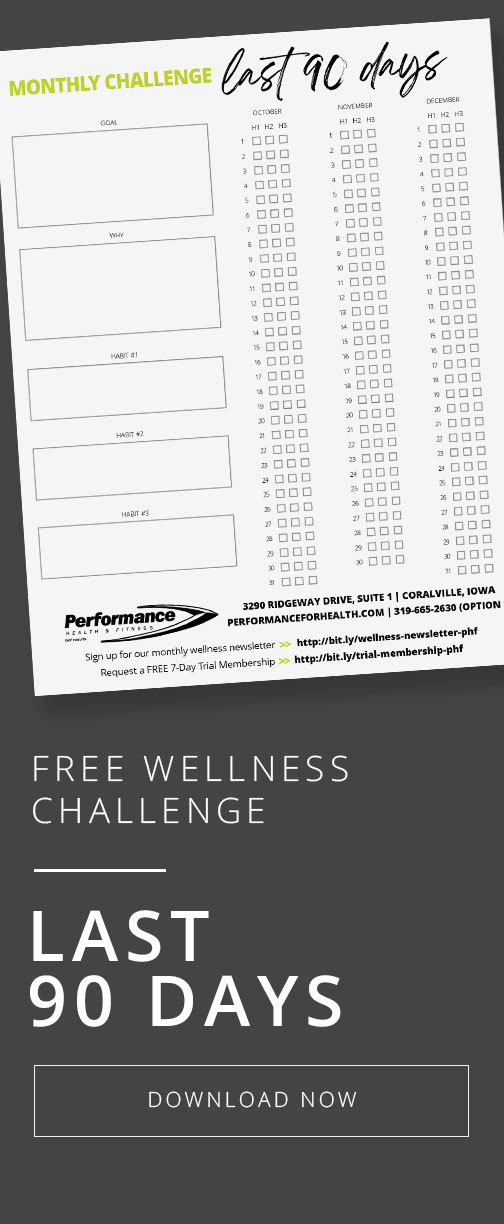With our 6th Annual Performance Health & Fitness Dri-Tri Indoor Triathlon coming up, I thought it was an appropriate time to discuss the importance of fueling before and during cardiovascular exercise. What you eat, the amount of what you eat, and the timing can impact your exercise.
What should I eat before exercise?
Carbohydrates are your body’s primary fuel source and should be the main source of your pre-workout fuel. Adding a little protein to your snack or meal can help with flavor and satiety, but too much fat can lead to cramping or GI issues because it slows digestion and should be limited if consumed within an hour prior to exercise. Make sure to always include hydration as part of your fueling plan and continue throughout the exercise.
If you have a few hours between fueling and your workout, you should have a meal that includes both carbohydrates and a little protein. Meals like oatmeal with peanut butter and a banana, a fruit and yogurt smoothie, or a PB&J or deli sandwich with fruit are all good options.
If you have less than an hour before your workout, choose easily digestible carbohydrates for quick energy. Foods like a piece of fruit, pretzels, or a sports drink will provide the quick energy you need. It is also important to know your body’s tolerance. Some people have can eat anything pre-exercise without GI issues, but others need to wait a few hours. You should experiment and figure out the timing that works best for you.
What should I eat during exercise?
If a workout is longer than 60 minutes it increases the risk for glycogen depletion (energy stores depleted), hypoglycemia (low blood sugar), and fatigue. Aim to consume 30-60g of carbohydrates per hour during exercise to prevent becoming under-fueled. Examples of easily digestible carbohydrates are sports drinks, sports gels, dried fruit, banana, pretzels, crackers, or bars. Consume water with carbohydrates to aid with gastric emptying. Sports drinks make it easy to get fluids, electrolytes, and carbohydrates all at once.
Proper fueling before and during exercise can help you optimize your performance.


